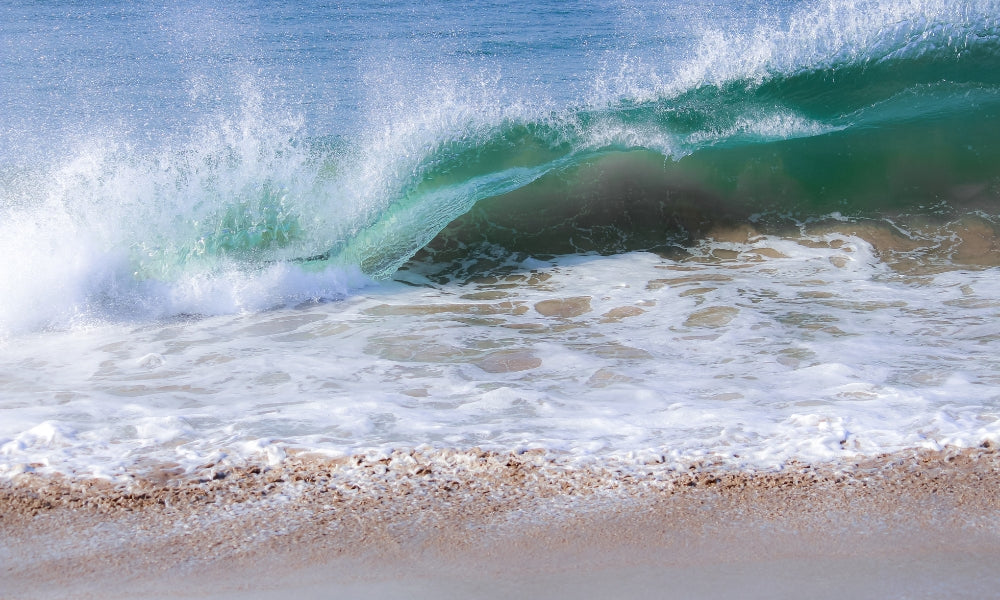
Get ready to celebrate Seaweek (1–9 March 2025) with us!
As we dive into Seaweek (Kaupapa Moana), it’s the perfect time to reflect on the precious oceans surrounding Aotearoa and think about how we can help protect them. The ocean is more than just a part of our landscape—it’s a vital source of life, culture, and wellbeing for New Zealanders. Seaweek is all about connecting with the sea, learning about its beauty and fragility, and taking action to protect it for future generations.
At Ecobags, we are proud to contribute to the protection of our oceans. As a company that cares deeply about sustainability, we're on a mission to make a positive impact and inspire others to do the same. Through our products and initiatives, we’re helping to keep our oceans clean, reduce plastic pollution, and promote a more sustainable future.
So, how can you get involved this Seaweek and make a difference?
1. Join a local beach clean-up
One of the most hands-on ways to connect with the ocean and make a tangible impact is by participating in a local beach clean-up. There are numerous beach clean-up events happening around New Zealand, and they’re a fantastic way to get out, enjoy the coast, and help rid our shores of harmful plastic waste.
The effects of plastic pollution on marine life are devastating, but every piece of plastic you remove from the beach is a step towards cleaner waters. Gather your whānau, friends, or local community, and head to your nearest beach to help clear the litter that threatens marine animals. And don’t forget to take some of your own Ecopack bin bags along to carry your cleaned-up waste away responsibly.
2. Support businesses committed to protecting our oceans
Supporting businesses that make sustainability a priority is one of the easiest ways to protect our oceans. At Ecobags, we are doing our part by creating high-quality products from recycled ocean-bound plastic waste. By giving new life to discarded plastic that would otherwise pollute coastlines and waterways, and wash out to sea, we’re helping to reduce the overall demand for virgin plastic production and lessen the strain on marine ecosystems. When you purchase our Ecopack Recycled Ocean-Bound Plastic bags, you're directly supporting the movement to reduce plastic waste in the ocean.
3. Get involved with citizen science
Citizen science is a fantastic way to contribute to ocean conservation in a meaningful way. Look out for local citizen science initiatives, such as marine monitoring programmes, where you can help collect data on water quality, local marine species, and pollution levels. Your involvement helps researchers track the health of our seas and take action to preserve them.
4. Educate yourself and others
A little bit of knowledge goes a long way! Take some time this week to learn about the incredible ecosystems that exist beneath the surface of our oceans - there’s so much to discover! Organise a Seaweek-themed event with your friends and whānau or watch documentaries on marine life. The more people who are aware of the ocean's value and vulnerability, the more likely we are to take collective action to protect it.
5. Reduce your own plastic footprint
Plastic waste continues to be one of the biggest threats to ocean health, but each one of us can help reduce the amount of single-use plastic that ends up in the sea. Take a pledge to reduce your plastic consumption—whether it’s by switching to reusable alternatives, carrying your own reusable coffee cup, water bottle and reusable tote or exploring compostable alternatives. The more you use reusable items, the less plastic will end up in our oceans.
So what are we here at Ecobags & Ecopack doing to protect the ocean?
We’re glad you asked! We’re not just talking about protecting the oceans—we’re actively doing our little bit to help. Here at Ecobags we are concentrating our efforts to flight ocean plastic pollution by:
1. Making new products from recycled ocean-bound plastic waste
We take discarded plastic from coastal communities and give it new life. We’ve made bin liners and pet poop bags from plastic waste that would have otherwise washed out to sea. These bags are made from OBP recovered from coastlines and waterways in Indonesia—with the supply chain audited by SEArcular.
2. Investing in plastic collection credits
We purchase plastic credits through Plastic Collective to address plastic waste outside of our value chain. Through this credit purchase, we are investing in plastic waste collection being undertaken by Greencore SEArcular Indonesia (Verra ID 4805) in one of the world’s plastic pollution hotspots.
3. Supporting local beach clean-ups with Our Seas, Our Future (OSOF)
We believe in the power of community action, which is why we’re proud to support local beach clean-up initiatives through the OSOF charitable trust. This incredible organisation inspires school groups and volunteers to take part in coastal clean-ups, marine conservation activities and educational programmes.
This Seaweek, let’s join together and take meaningful action to protect the oceans that surround us. He waka eke noa—we’re all in this together!

